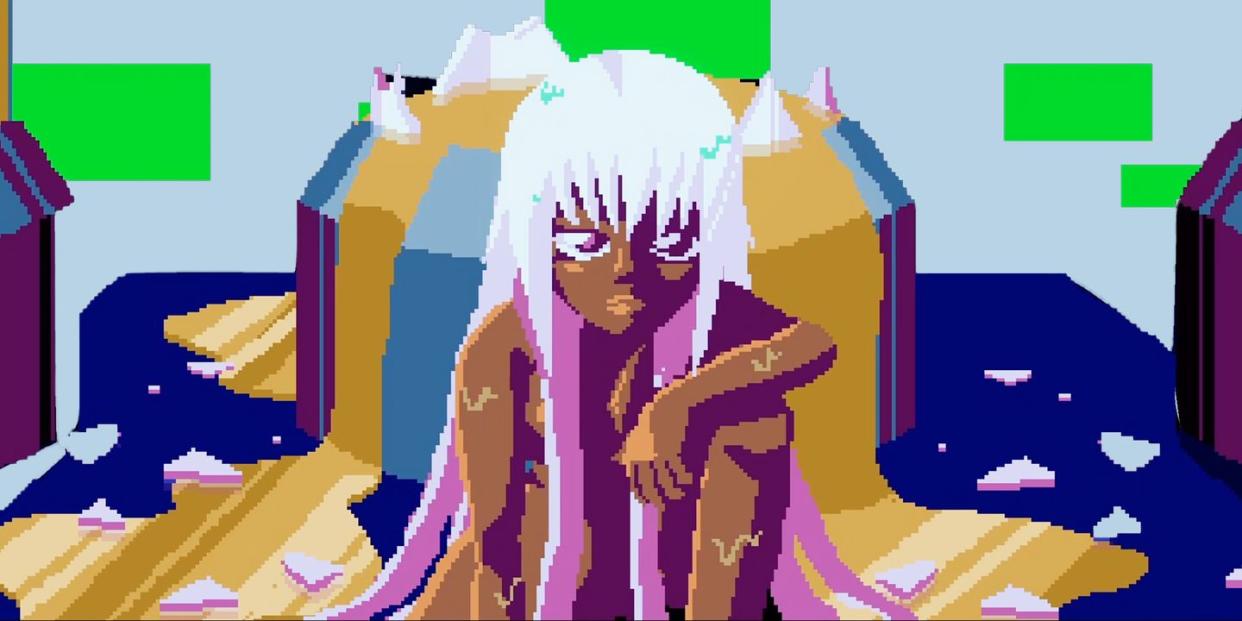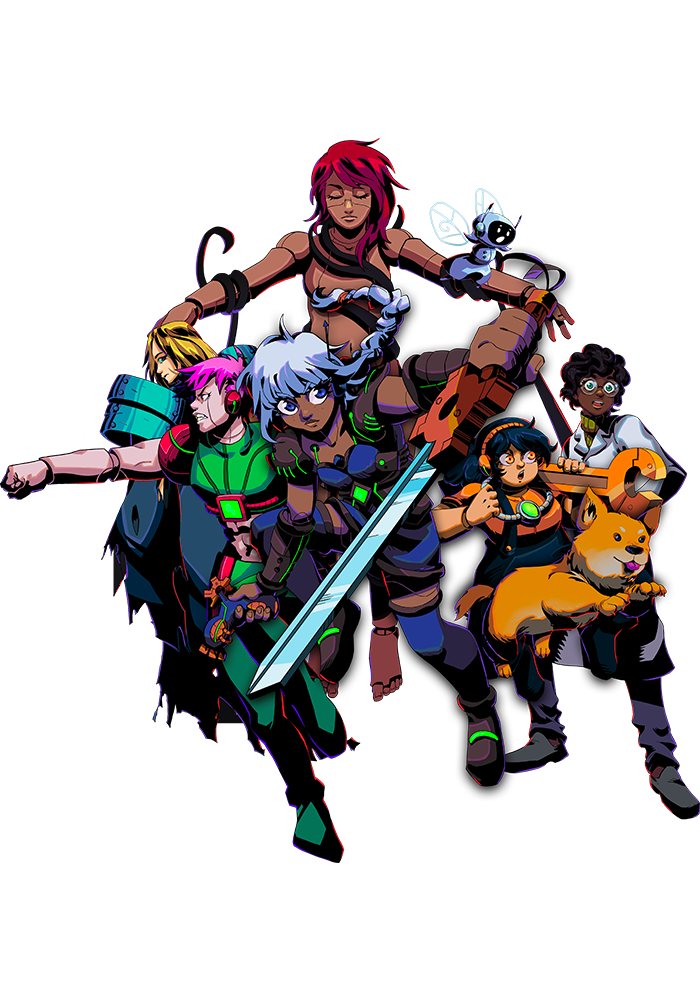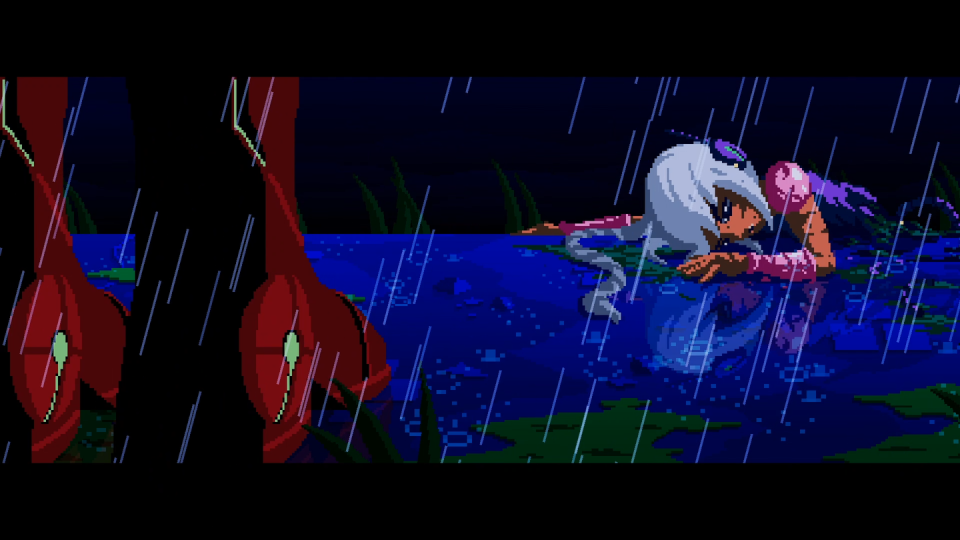I’ve Never Felt Heartbreak in a Video Game Like I Did in the Brilliant 'Unsighted'

- Oops!Something went wrong.Please try again later.
I have never played a game like Unsighted before. Sure, I have spent hours, probably even days, or maybe weeks, wolfing down the indie title’s many, many influences. Mostly its Zelda predecessors. There’s a little Breath of the Wild in there, a lot of Link to the Past, and one very central mechanic that nods to Majora’s Mask. Beyond Zelda, other writers—the few that have covered this under-the-radar new game from the Brazilian, LGBT-identifying game devs at Studio Pixel Punk—have pointed out the resemblances to action RPGs or Metroidvanias like Hollow Knight, Hyper Light Drifter, the Souls games, and the Ori franchise. But none of those games capture the feeling of heartbreak that’s explored in Unsighted. It’s a game that, for better or for worse, makes you decide which of your friends are allowed to make it with you to the end. God, it’s devastating.
I’m on my second run of Unsighted at the moment. I think this is how the game is meant to be experienced. You’re meant to try, and try again, to finish the tragic story with as many surviving cast members as you can manage.

If you’ve heard anything about Unsighted yet, you’re probably aware of the aforementioned Majora’s Mask countdown timer. In the cyberpunk (and quietly radical) world of Unsighted, populated almost completely by women of color, robots are losing consciousness. Following a war with humanity, the automatons are going “unsighted.” So, each of them—including you, Alma, a queer woman android searching for her lost partner—has only a few hundred hours (which equates to less than 10 hours in real time) before you lose your sentience and become like one of the mechanical monsters who terrorize the fields and dungeons of your adventure.
The best way I can describe Unsighted is as if the moon of Majora’s Mask was crashing down into more than a dozen worlds at once. And, depending on how quickly you can finish the game—or at least find bags of “meteor dust” to keep the fading characters alive throughout your journey—you will suffer that loss you felt, each time you failed in Majora’s Mask, with each individual person who goes unsighted along the way.
Want unlimited access to gaming reviews like this? Join Esquire Select.
If you’re quick and efficient in your run, you may never lose a soul. But, as I said, I’m on my second run now (Alma went unsighted as I entered the third dungeon in my last run), and two of my favorite characters just lost consciousness. I had to put my Nintendo Switch down and stop playing for a bit. This game is not fucking around. As far as I know, there’s no way to bring them back. When they’re gone, they’re really gone. Seeing my robotic helper, Iris, say, "I don’t think I can be around you anymore," and unceremoniously float away to her doom...it was too much to bear. For a game that, on the surface, appears to just be yet another action RPG about shooting and jumping, that’s disarming.
Unsighted also interrogates the video game cliche of an NPC (Non-Playable Character). By putting their lives in your hands, Studio Pixel Punk has made me empathize with the sort of figures that I’ve never thought twice about before. Take, for example, the concept of a humble shopkeeper. The brilliantly idiosyncratic ones in Ocarina of Time always come to mind first. Generally, when you enter a shop in an RPG, when you get into a PokeMart in Pokémon, you don’t ever really meet the shopkeeper who sells you Pokeballs. You just buy your stuff and get out of there.

In Unsighted, once you meet Ana the shopkeeper, you don’t forget her. You see how frightened she is, how trepidatious she acts as she sees that you’ve returned to the Gear Village. And when you’re out fighting unsighted androids in the dungeons and you get a ping alerting you that Ana is soon to lose consciousness, you know that, for one, you’ll no longer have access to any of the items in her store you’ll need to survive, but, more tragically, that this person is going to lose her soul. So you carry that thought with you as you tear through monsters, seeking another chest of meteor dust so you can bring her back to health for another 24 hours.
I’ve felt attached to characters in video games before, and sure, I’ve gotten to know a lot of memorable NPCs, but I can’t say I’ve ever carried their burden throughout my day. When I lost a few of the villagers most recently, I was worried I might lose sleep over them. Should I start the game over again? Should I cut my losses and try to finish out my run before I lose anyone else?
The action in Unsighted is top-tier. The weapon systems, the pixel art, the music... There’s so much, so much, to nosh on here. But I think the idea of consciousness, and the fear of losing it, is the real brilliance of Unsighted.
The game may look, on the surface, like another 16-bit throwback action game, another Hyperlight Drifter, another Dead Cells. But to me, it’s in a league of its own. You should play it not just because it was made by a team of people whose voices aren’t normally heard in gaming, but also because it captures something quite tragic. And when it comes time for Game of the Year roundups, I think Unsighted is going to be a tough contender to beat for the top of my list.
Unsighted is available from Humble Games on Playstation 4, Xbox (included on Game Pass), Steam, Humble Store, and feels absolutely great in handheld mode on Nintendo Switch.
And yes, there are dogs in the game. And you can pet them (and help them take naps, too!).
You Might Also Like

